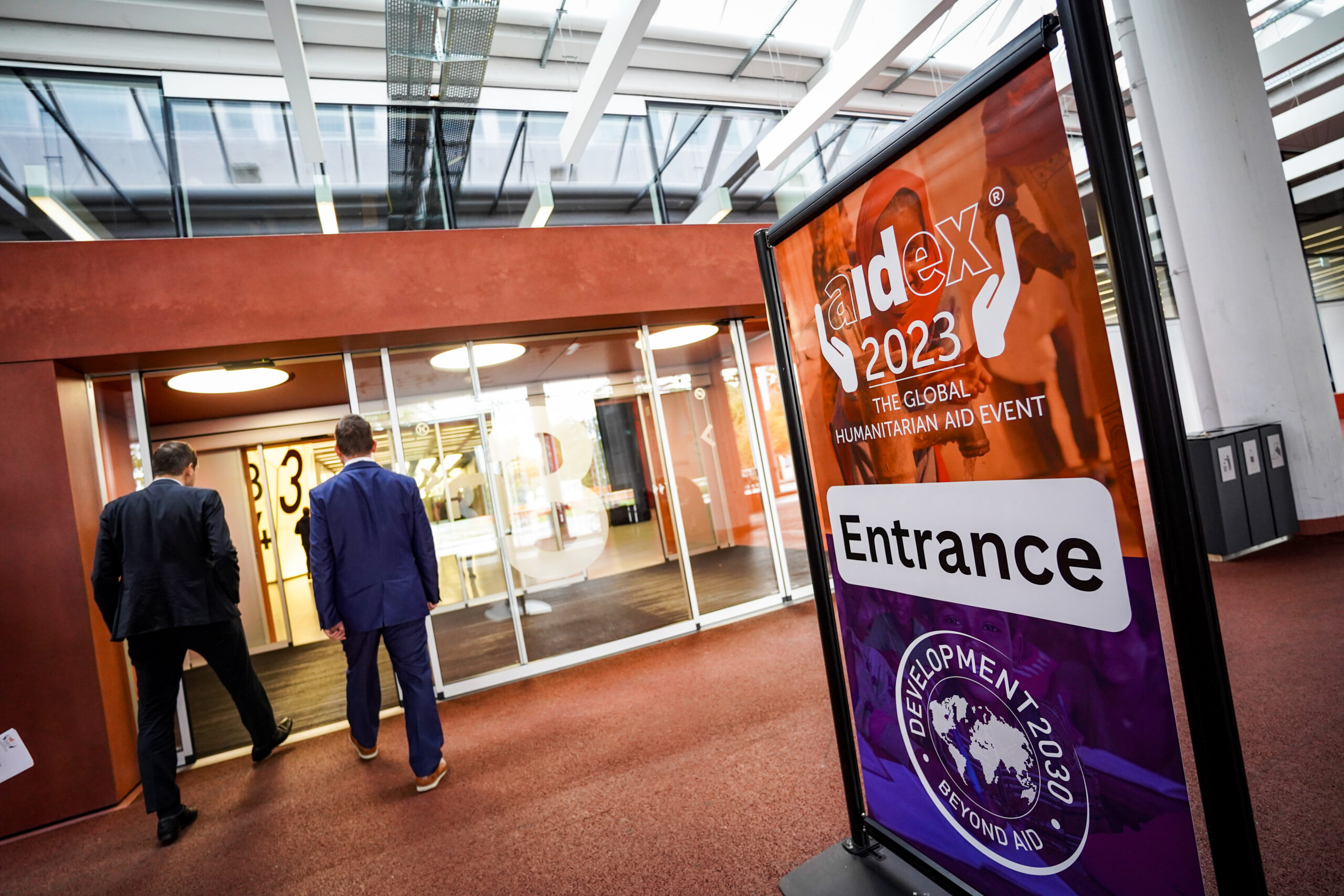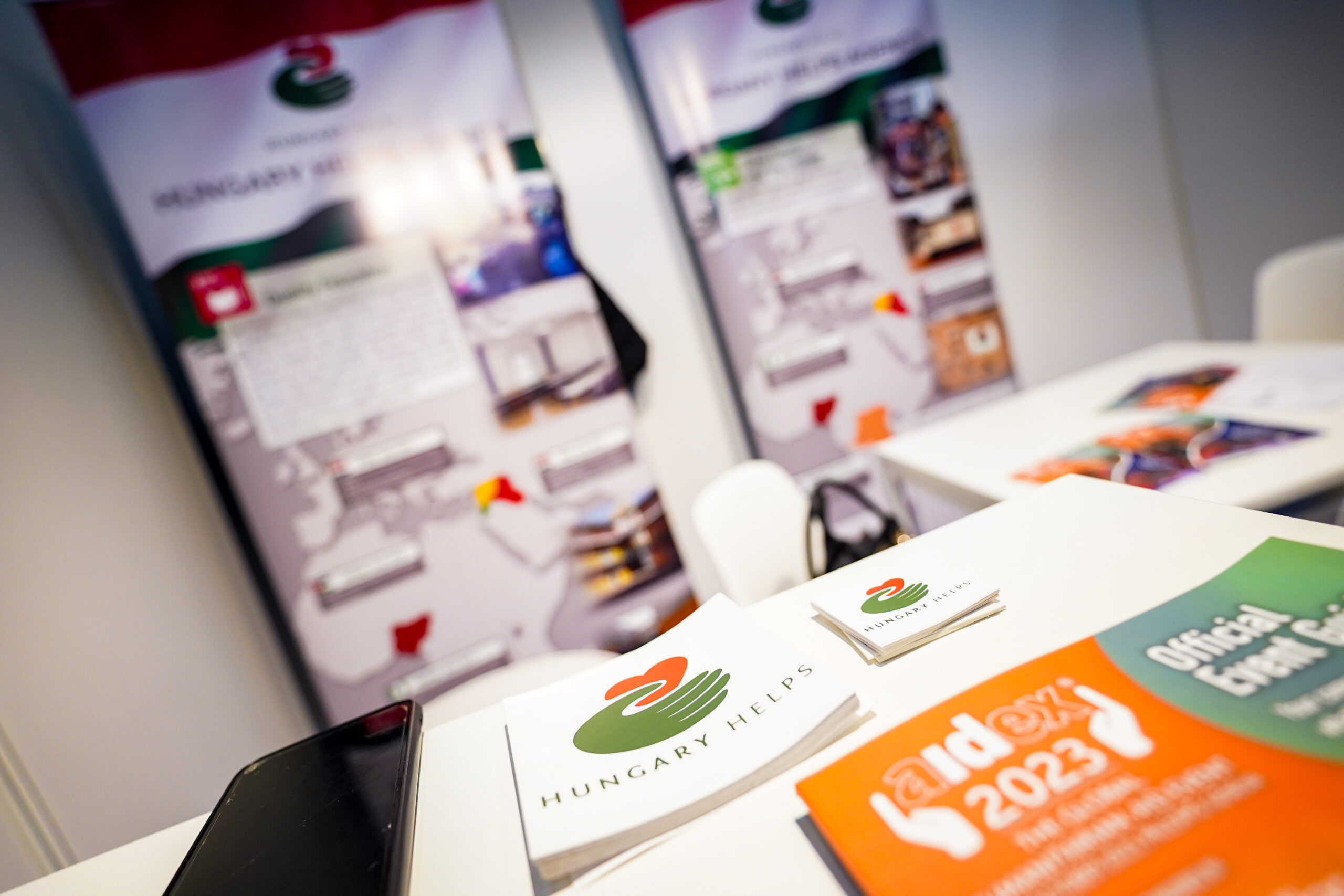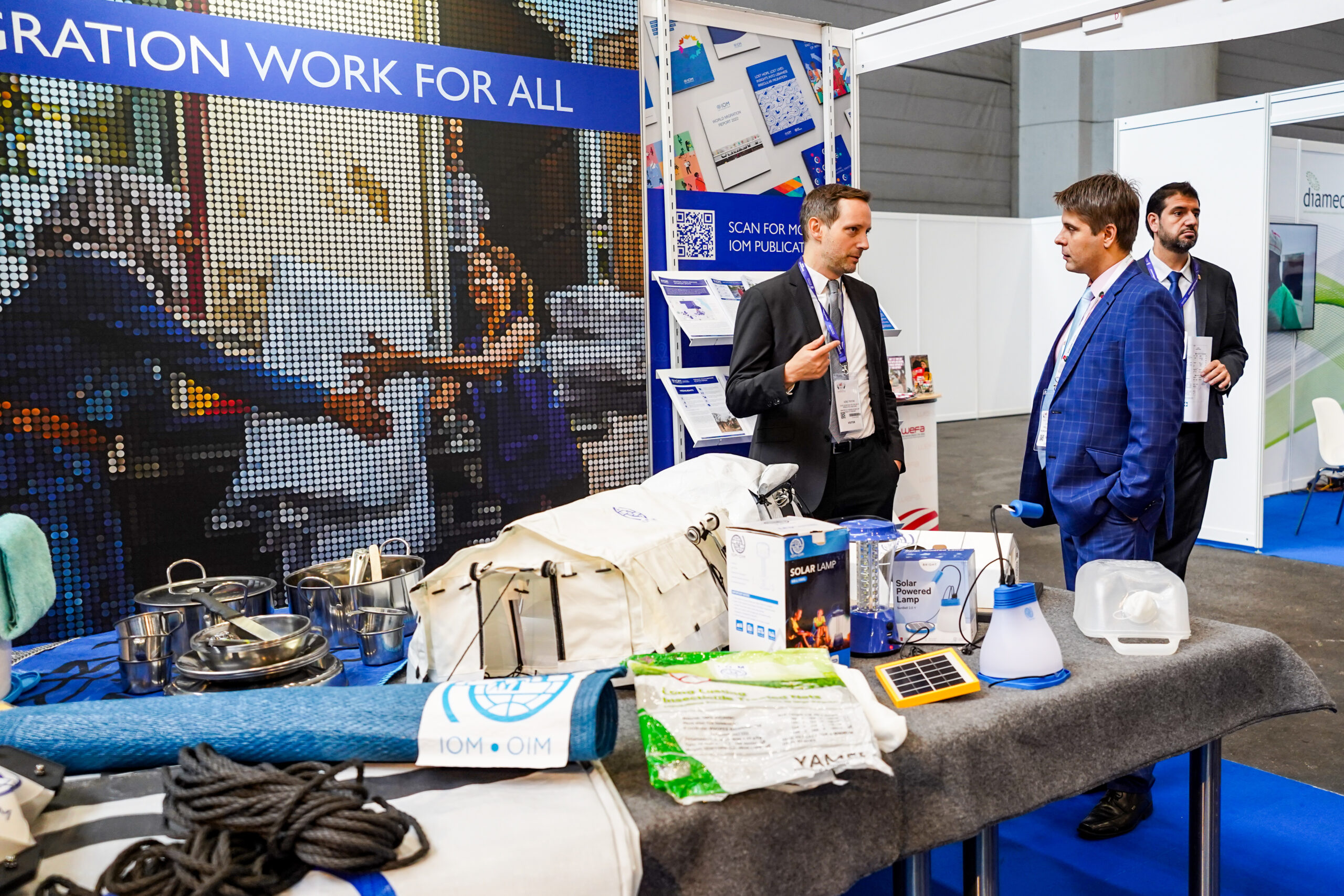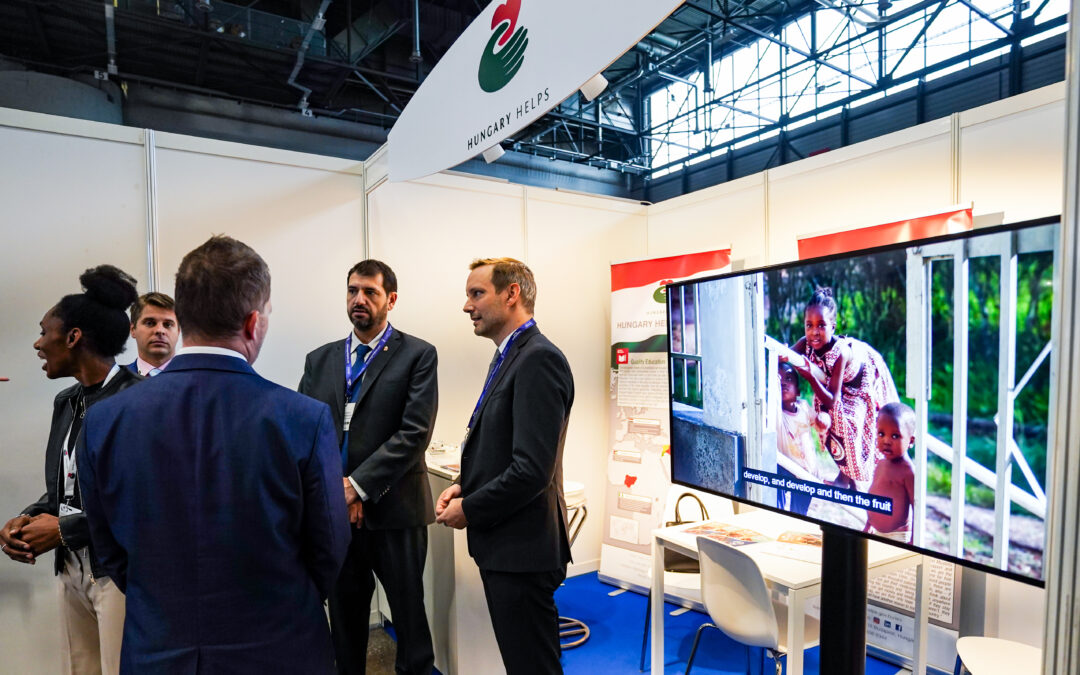The AidEx 2023 conference, the world’s leading humanitarian, relief and disaster response event, will take place in Geneva from 25-26 October 2023, with high-level conference sessions, workshops, discussion forums, impact assessments and training programmes. The event will bring together representatives from the humanitarian and development community from over 65 countries to discuss aid opportunities and solutions to their challenges. Among the more than 3,000 participants are experts from UN agencies, the EU, Red Cross and Red Crescent Societies, local, government and private sectors.

The opening day of the event was attended by Hungary Helps Agency staff and Tristan Azbej, State Secretary for the Aid of Persecuted Christians, Ministry of Foreign Affairs and Trade. In a panel discussion on the long-term, global impact of the crises in the Sahel and the Middle East, he stressed the relevance of the event. He explained that the Sahel and the Middle East in Africa has been a complex area of crises for decades, where the effects of local economic, political, security and climate instability extend far beyond the borders of the region. He stressed the importance of local actors, governments, civil society and international organisations working together to tackle the problem and find solutions. Close cooperation and coordination between local organisations and UN agencies is essential. Furthermore, he stressed the importance of seeking responses based on local capacity, knowledge and expertise, localising aid and bearing in mind the „triple nexus” principle, which emphasises the interlinking of relief, development and peace-building efforts. He explained in detail that in the Sahel region, countries are losing stability one after the other, if the last remaining stable bastion, Chad, were to suffer the same fate, it could mean the start of a migratory flow that poses an extremely high risk to Europe. 
He shared his experiences after two humanitarian fact-finding missions, highlighting that the Hungarian government has recognised the importance of the challenges facing the Sahel region of Africa and has therefore decided to open a humanitarian and development centre in N’Djamena, the capital of Chad, through the Hungary Helps Programme. This centre will be responsible for coordinating and ensuring the effectiveness of our Hungarian programmes and activities in Chad and the Sahel. He also reported on the results of the two humanitarian medical missions, the training of Chadian professionals working in refugee camps, and the work of Hungarian agricultural and water professionals who are using their expertise to help provide safe food, drinking water and irrigation to people facing famine in the desertification-stricken country. The State Secretary added: „Our aim is to strengthen stability in the region, and we also consider it essential to develop cooperation with government actors.”


Legutóbbi hozzászólások